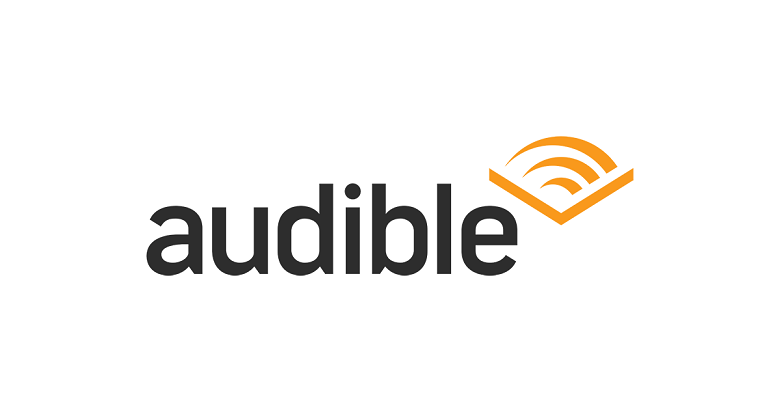As the author Stephen King once said, “Books are a uniquely portable magic.” The debate over whether listening to audiobooks via Audio or traditional reading is better continues to intrigue many. Both methods offer unique advantages and cater to different preferences and lifestyles. Let’s explore audiobook vs reading and the pros and cons of each to help you decide which might be better for you.
The Case for Audible
Convenience and Multitasking
Audible’s standout feature is its convenience. Audiobooks allow you to multitask, making them perfect for those with busy schedules. Whether you’re commuting, exercising, or doing household chores, you can engage yourself in a story without needing to sit down and focus solely on a book. This flexibility is invaluable, allowing you to make the most of your time.
Accessibility
For individuals with visual impairments or reading disabilities, audiobooks offer an accessible alternative to traditional reading. Audible provides a vast library of books read by professional narrators, ensuring that literature is available to everyone. This inclusivity is a significant advantage, enabling more people to enjoy books.
Narration and Performance
Narration quality can greatly uplift the storytelling experience. Talented narrators bring characters to life, adding emotion, tone, and personality. Some audiobooks even feature multiple narrators or full-cast production, offering an experience akin to a radio drama. This auditory aspect can make stories more vivid and engaging.
Portability
With Audible, your entire library is portable. There’s no need to carry physical books, which is particularly beneficial when traveling. You can access thousands of books anytime, anywhere. This convenience makes audiobooks a popular choice for those on the go.
Continuous Learning
Audiobooks provide an opportunity for continuous learning. You can easily explore a wide range of genres and topics, from self-improvement to history and fiction. This accessibility encourages lifelong learning and curiosity, as you can read books that expand your knowledge and perspectives.
The Case of Reading
Deep Focus and Comprehension
Reading a physical or digital book requites more focus and engagement than listening. This active involvement can lead to better comprehension and retention of information. Many people find that they remember details and understand complex narratives more thoroughly when they read, making it ideal for deep learning.
Personal Interaction with the Text
Reading allows for a personal interaction with the text. You can highlight passages, make notes, and easily flip back to reread sections. This tactile experience can be enriching, providing a deeper connection to the material. The ability to engage with the text on a personal level is something audiobooks cannot replicate.
No Distractions
While listening to audiobooks often happens alongside other activities, reading typically demands your full attention. This can be a welcome escape from the distractions of modern life, providing a peaceful and immersive experience. The solitude of reading can be therapeutic, offering moments of reflection and introspection.
Reduced Screen Time
Reading a physical book is an excellent option for those looking to reduce screen time. It offers a break from the digital world, which can be refreshing in today’s technology-driven society. The tactile nature of holding a book and turning its pages provides a sensory experience that may be comforting and grounding.
Strengthen Vocabulary and Writing Skills
Reading regularly can sharpen your vocabulary and improve your writing skills. Exposure to well-written texts helps you learn new words and understand sentence structures, which can translate into better communication skills. This educational benefit is a significant reason why many prefer traditional reading.
Factors to Consider
Learning Style
Consider your learning style. Are you an auditory who absorbs information better through listening? Or do you find that visual input helps you retain formation more effectively? Your learning preferences can significantly influence which method is more beneficial for you. Understanding how you can learn best can help you choose the right format.
Lifestyle and Routine
Your daily routine can also determine which option is better. If you spend a lot of time commuting or have a lifestyle that allows you to listen while doing other tasks, Audible might be more practical. Conversely, traditional books might suit you better if you cherish quiet, dedicated reading time. Reflecting on how you spend your day can guide your choice.
Cost
Both Audible and traditional books come with costs. Audible offers a subscription model, providing access to a vast library but at recurring fees. Physical books, while potentially more expensive individually, don’t require a subscription. E-books can be a more affordable alternative, often available for less print versions. Consider your budget and how often you consume books.
Genre and Purpose
Certain genres lend themselves better to one format than the other. For example, complex nonfiction or textbooks might be easier to comprehend through reading, where you can take notes and review sections. In contrast, novels and biographies might be more enjoyable than audiobooks, especially if narrated by a skilled performer. Think about what you want to get out of your reading experience.
Combining Both Methods
Many readers find value in combining both methods. Known as “immersive reading,” this approach involves listening to an audiobook while following along with the text. This method can heighten comprehension and retention, providing auditory and visual learning benefits. It’s an innovative way to enjoy literature and can cater to different learning preferences.
The Impact of Technology
The evolution of technology continues to blur the lines between audiobooks and traditional reading. Features like Amazon’s Whispersync allow seamless switching between audiobook and e-book formats. This integration means you can listen when it’s convenient and read when you prefer a more immersive experience. Technology enhances accessibility, making it easier to enjoy books in various formats.
Wrapping Up
Audiobook vs reading? Ultimately, making the right choice depends on personal preference, lifestyle, and individual learning styles. Both methods offer unique advantages that cater to different needs. Whether you’re an audiobook aficionado who appreciates the convenience and performance of narrated books or a traditionalist who finds solace in the pages of a book, there’s no wrong choice. Embrace what works best for you, and consider exploring both to enrich your reading experience.
By understanding the benefits and limitations of each method, you can make an informed decision that aligns with your interests and lifestyle. Whether you choose to listen, read, or do a bit of both, the most important thing is to enjoy exploring new worlds and ideas.
Frequently Asked Questions
1. How do audiobooks influence comprehension compared to reading?
Audiobooks can enhance comprehension for auditory learners by providing vocal emphasis and emotional cues that bring the text to life. The tone and inflection of narrators can highlight important aspects of the narrative, helping listeners grasp complex emotions and themes. However, some studies suggest that reading might lead to better detail retention, as it requires deeper cognitive engagement. Combining both methods through “immersive reading” can improve comprehension by engaging multiple senses for those who struggle to focus while listening.
2. Can listening to audiobooks improve vocabulary as effectively as reading?
Listening to audiobooks can improve vocabulary, particularly in understanding pronunciation and usage in context. Hearing new words repeatedly in audiobooks can help reinforce their meaning and correct pronunciation. However, reading allows you to see the spelling and structure of new words, which can benefit visual learners and improve spelling skills. To maximize vocabulary building, consider following along with the text while listening to the audiobook, combining the strengths of both methods.
3. Are there specific genres that work better as audiobooks?
Certain genres can be more engaging as audiobooks, particularly those that benefit from strong narration. Fiction, especially with rich dialogue and character-driven stories, can come alive with a skilled narrator. Biographies and memoirs read by the authors themselves offer an authentic experience that might be more impactful than reading the text. Conversely, complex academic texts or detailed manuals might be better suited for reading, where you can easily reference and annotate information.
4. How does the experience of emotional engagement differ between audiobooks and reading?
Emotional engagement can vary widely between audiobooks and reading. Audiobooks provide an immediate emotional impact through the narrator’s performance, using tone and pace to convey feelings and tension. This can make the experience more visceral and immediate. On the other hand, reading allows for a more personal interpretation of emotions as readers imagine the voices and emotions themselves. This can lead to a deeper internalization of the story as the reader constructs the emotional landscape.
5. What are the long-term effects of choosing one method over the other?
Choosing audiobooks or reading as your primary method can have different long-term effects on cognitive skills and lifestyle habits. Regular audiobook listening can enhance auditory processing abilities and multitasking skills. However, it might lead to less spelling and visual word recognition development. Conversely, reading strengthens focus and concentration, visual memory, and critical thinking skills. Balancing both methods can offer a comprehensive approach to cognitive development, leveraging the strengths of each.





